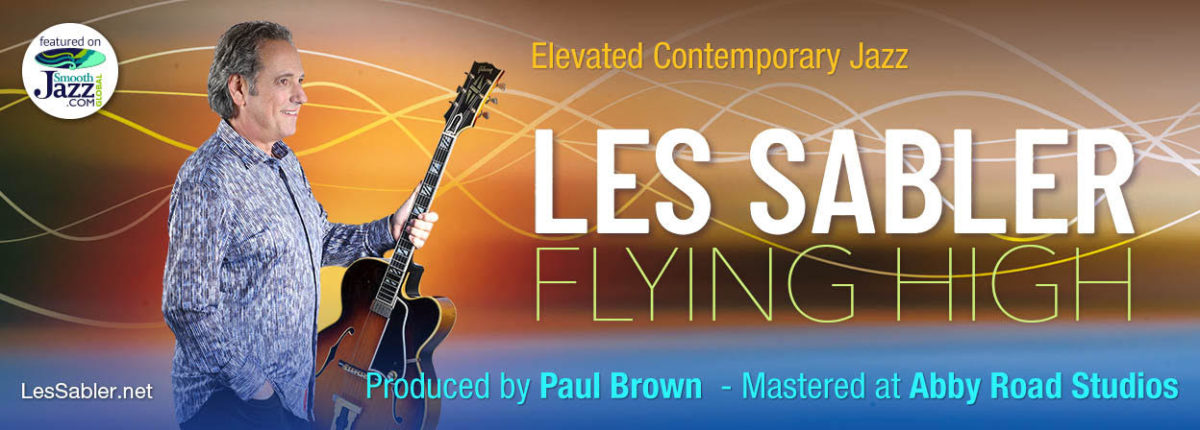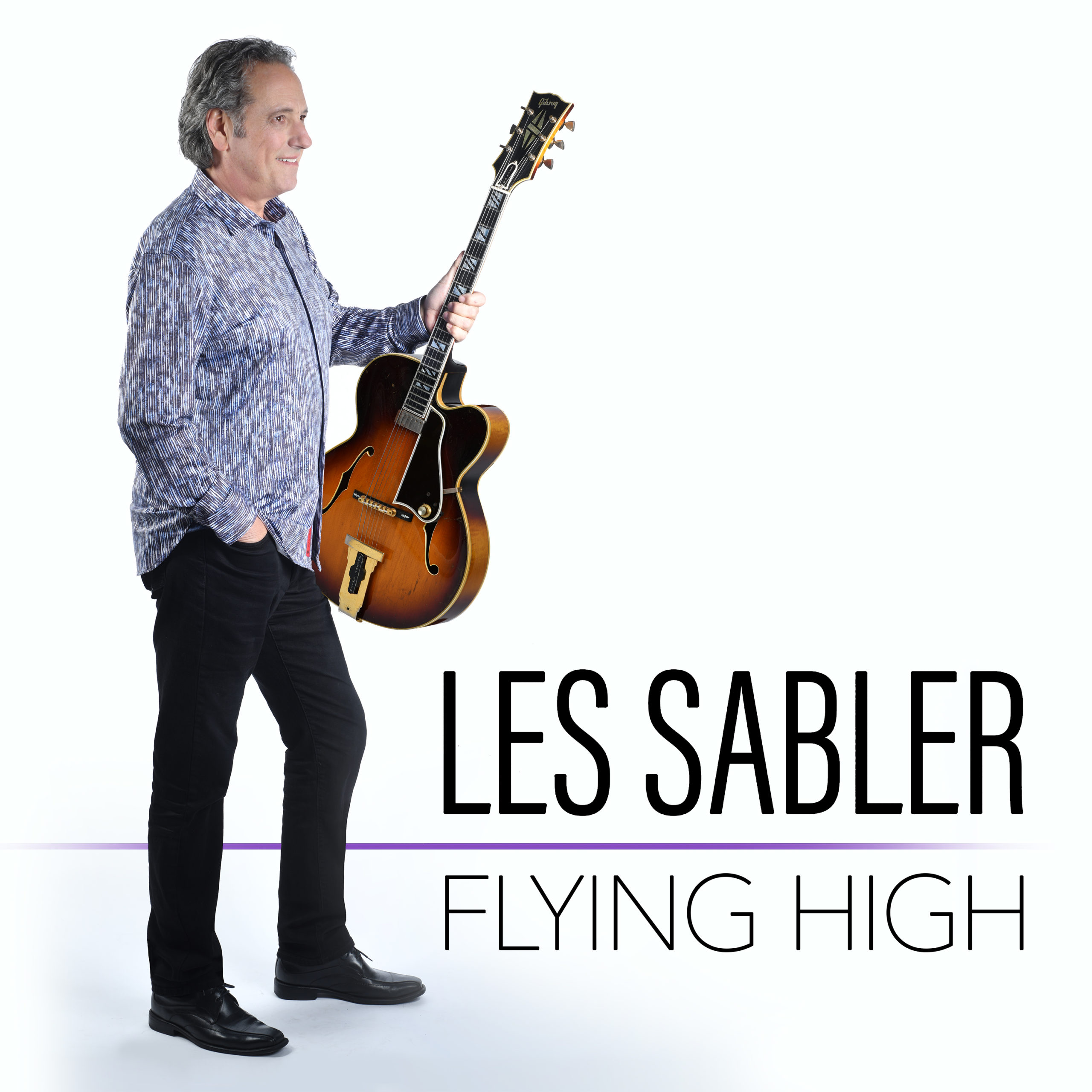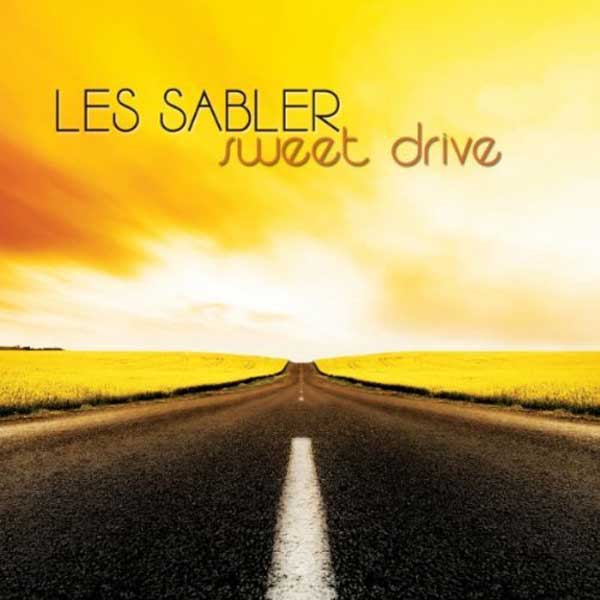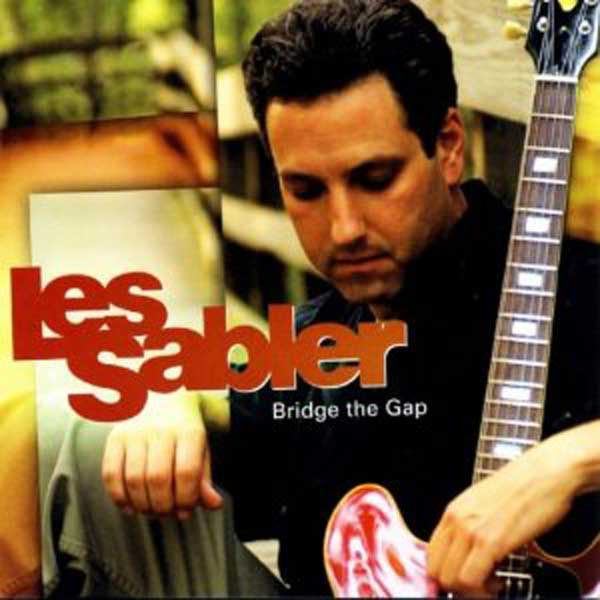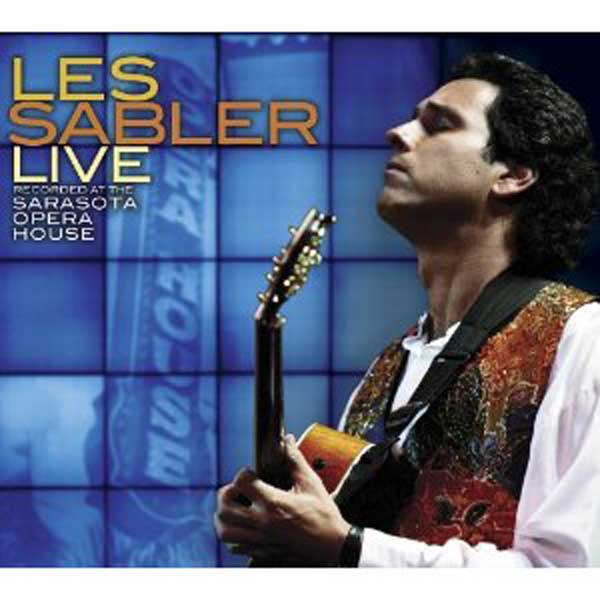Description
Pre-order – ships in March
When two-time Grammy-winning
producer Paul Brown (George Benson, Larry Carlton, Norman Brown,
Boney James, Kirk Whalum) agreed to produce contemporary jazz guitarist
Les Sabler’s “Tranquility” album, it led to a transformational project by the
fretman. With Brown at the helm, Sabler hit a new creative zenith on that
2021 album. For his ninth album, Sabler reunited with Brown to record
“Flying High,” which is slated to arrive on February 3 from New Vista
Records.
Brown’s fingerprints are all over “Tranquility.” His suggestion that Sabler
get a vintage 1967 Gibson Johnny Smith guitar reshaped the guitarist’s
sound, inspiring his best performances. Bringing in songwriters Shane
Theriot (Hall & Oates, Dr. John, Neville Brothers) and Lew Laing (Norman
Brown, Marion Meadows, Raheem DeVaughn) to write songs with him
equipped Sabler with richly melodic material incorporating an array of jazz,
R&B, funk and pop nuances. The teaming proved to be transcendent,
ushering Sabler into the number one spot on the Mediabase chart with the
gorgeous and graceful nylon stringed “Esselle’s Dance,” which also hit
number five on the Billboard chart. The compelling collection, along with
the impassioned and nimble guitarwork featured within, led to Sabler being
profiled in Vintage Guitar magazine.
“I’m at the top of my game, hitting my creative stride on the last album
(“Tranquility”). ‘Flying High’ takes it to another level,” said Sabler who
reassembled the same team for the new disc.
Actually, Sabler added one key figure to the “Flying High” creative outfit. It
was brought to Sabler’s attention that Abbey Road Studios mastering
engineer Geoff Pesche named “Tranquility” as his favorite album of 2021.
That spurred Sabler to invite Pesche to master “Flying High” in the iconic
studio made famous by The Beatles.
With Brown back in the producer’s chair and cowriting all seven original
songs for “Flying High,” Sabler again finds himself keeping frequent
company with Theriot (keyboards, rhythm guitar, bass, drum programming),
who cowrote five tunes on the new offering, including the album opener,
“Over The Top,” a cool and confident midtempo mood-setter that gets an
assist from Greg Vail’s whimsical flute.
Exemplifying self-assurance, Sabler stretches his artistic muse on the
searing “Compared To What,” a jam recorded by jazz pianist Les McCann
and saxophonist Eddie Harris at the famed Montreux Jazz Festival in
1969. In addition to Sabler’s incendiary finger work, this version burns via
the firepower of keyboardist Marco Basci, trumpeter Ron King, and Vail’s
sax over percolating rhythms cooked up by drummer Joel Taylor, bassist
Travis Carlton, and percussionist Lenny Castro.
“I’ve been a fan of McCann’s for decades and was fortunate to meet and
spend some time with the legend at the 1990 JazzTimes convention in
New Orleans. As luck had it, they put us in adjacent hotel rooms,” Sabler
recalled fondly.
Laing (keyboards, bass, drum programming) and Sabler pushed the limits
with the single “Keep Pushin’” for “Tranquility,” and their reunion bodes to
be equally luminous. “Moonlight” builds on their chemistry as Sabler’s
sinewy electric guitar beams amidst the shimmering track.
The title cut ascends on its rousing chorus launched by a Gorden
Campbell drum groove. Sabler defers to the warmth of his nylon stringed
guitar on “Old Friends,” despite fostering a sense of exotic adventure. “New
Bossa,” a multicultural amalgam powered by a vibrantly animate melody, is
Sabler’s latest single to instantly dance onto the SiriusXM Watercolors
playlist and has begun its ascent of three national jazz charts
simultaneously.
Venturing into standards territory, Sabler interprets Academy Award-
winning “The Windmills Of Your Mind” from 1968’s “The Thomas Crown
Affair” as a somber and sultry staccato Latin groove, using his nylon string
guitar to emote eloquently and exchange elegant banter with Lou
Pomanti’s (Michael Bublé, Gordon Lightfoot) keyboard poetics. Sabler
credits Dusty Springfield’s version as his influence.
Sabler’s inspiration for another modern classic, “Summer In The City,”
came from a version Quincy Jones recorded in 1973. Sabler’s
reimagination is steamy and creates tension like The Lovin’ Spoonful’s
original, but the guitarist is buttressed by a robust horn arrangement that
includes Vail’s bellowing saxophone. After, “Soft and Smooth” dials down
the intensity. Despite the slower, more deliberate cadence, Sabler’s
loquacious guitar licks leap to the fore in a lyrical repartee.
“Double Jeopardy” is seductive, mysterious and alluring, highlighted by
Sabler’s nylon string overtures and King’s soulful trumpet coos. Sabler
pays homage to one of his influences, guitar legend Kenny Burrell, on “A
Child Is Born,” which closes the collection. Burrell recorded the Thad
Jones gem in 1971.
“This arrangement differs from the original 3/4-meter as it is performed in
straight 4/4, however, it retains the expressive flavor of the beautiful
composition,” said Sabler.
A native of Montreal who makes his home in Nashville, Sabler recorded the
score for a Canadian Television Network documentary about the lost
treasures of the Titanic in 1989, seeding the release his debut album,
“Hidden Treasure,” the following year. His catalogue boasts collaborations
with Grammy winners Jeff Lorber, Vinnie Colaiuta and Jerry Hey as well
as Grammy nominees Brian Bromberg, Eric Marienthal, Richard Elliot
and Alex Acuna. Sabler earned a Jazz Artist of the Year nomination from
the Canadian Indie Awards while his albums have been nominated
multiple times for Album of the Year by the Canadian Smooth Jazz
Awards, which also honored him twice as a Guitarist of the Year
nominee. On stage, Sabler has headlined or opened for artists such as
Lorber, Elliot, Spyro Gyra, Michael Lington and Diane Schuur.
“Flying High” contains the following songs:
“Over The Top”
“Compared To What”
“Moonlight”
“Flying High”
“Old Friends”
“New Bossa”
“The Windmills Of Your Mind”
“Summer In The City”
“Soft and Smooth”
“Double Jeopardy”
“A Child Is Born”
